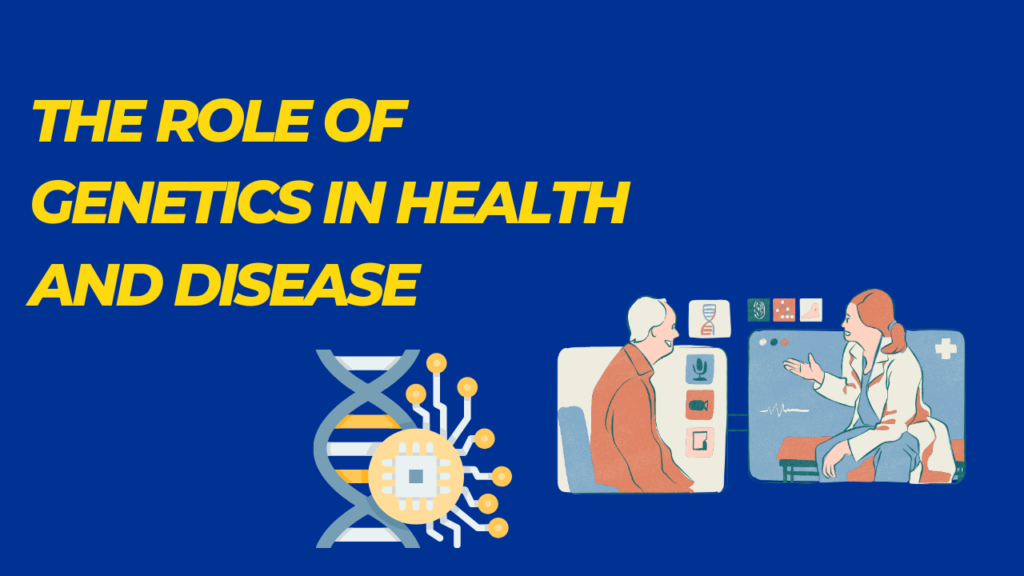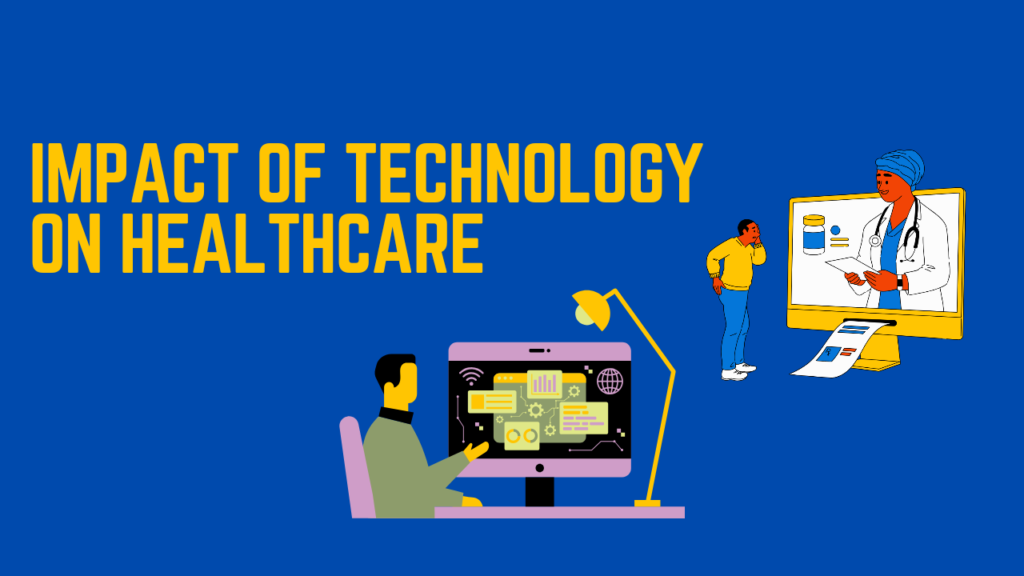THE ROLE OF GENETICS IN HEALTH AND DISEASE

Our genes contain instructions for building and maintaining our bodies, and variations in these genes can influence our susceptibility to certain diseases and conditions. Genetic factors can increase the risk of developing conditions such as heart disease, cancer, diabetes, and mental health disorders. Additionally, genetics can also affect how our bodies respond to medications, which is important for personalized medicine approaches. However, it’s essential to note that genetics is just one piece of the puzzle, and lifestyle and environmental factors also play a crucial role in overall health and disease prevention.
Our genes, inherited from our parents, contain the instructions for the development and functioning of our bodies.
- Inherited Traits: Many physical and biological traits, such as eye color, height, and susceptibility to certain diseases, are determined by our genetic makeup. These are often inherited from our parents.
- Genetic Disorders: Mutations or variations in specific genes can lead to genetic disorders. These can range from relatively mild conditions like color blindness to severe diseases like cystic fibrosis or Huntington’s disease.
- Risk Factors: Genetic factors can increase the risk of certain diseases. For example, having specific genetic variants can make someone more susceptible to conditions like heart disease, diabetes, or certain types of cancer.
- Pharmacogenetics: Genetics also influence how individuals respond to medications. Understanding a person’s genetic profile can help doctors choose the most effective and safe treatments.
- Precision Medicine: Advances in genetics have led to the development of precision medicine. This approach tailors medical treatments to an individual’s genetic characteristics, leading to more effective and personalized healthcare.
- Genetic Testing: Genetic testing can provide valuable information about an individual’s risk for certain diseases and help in making informed health decisions. However, ethical and privacy considerations are important in this context.
- Epigenetics: Epigenetics is the study of how environmental factors can influence gene expression without altering the underlying DNA sequence.
- Genetic Counseling: Genetic counselors work with individuals and families to assess the risk of genetic disorders and help make informed decisions about family planning and healthcare.
Overall, genetics is a complex field with a profound impact on our health. Understanding the interplay between genetics, lifestyle, and environmental factors is crucial in managing and preventing various diseases.
Our genes, which are made up of DNA, contain instructions for building and maintaining our bodies. Variations or mutations in these genes can impact our susceptibility to certain diseases and conditions. Some conditions, such as cystic fibrosis or sickle cell anemia, are caused by mutations in specific genes.
Additionally, genetics can influence how our bodies respond to environmental factors like diet, exercise, and toxins. For example, certain genetic variations can affect how efficiently our bodies metabolize certain nutrients or drugs, leading to different health outcomes.
Advances in genetic research have also enabled the development of personalized medicine, where treatments are tailored to an individual’s genetic makeup. Genetic testing can help identify risk factors for diseases, allowing for proactive measures and personalized healthcare plans.
It’s important to note that while genetics plays a crucial role, lifestyle and environmental factors also significantly impact overall health. A combination of genetic predisposition and lifestyle choices determines an individual’s susceptibility to various diseases and conditions.
Genetics plays a crucial role in determining an individual’s susceptibility to various health conditions and diseases. Our genes contain instructions that influence our traits, growth, development, and overall health. Certain genetic variations can increase the risk of specific diseases, such as heart disease, diabetes, and certain types of cancer.
Additionally, genetics can also affect how our bodies respond to
Genetics play a significant role in health and disease. Our genes, which are made up of DNA, contain instructions for building and maintaining our bodies. Variations in these genes can influence our susceptibility to certain diseases and conditions. Some conditions, like cystic fibrosis or sickle cell anemia, are caused by mutations in specific genes.
Additionally, genetics can influence our risk of developing common complex diseases such as heart disease, diabetes, and certain types of cancer. Studying genetic patterns can help scientists understand disease risks and develop personalized treatments based on an individual’s genetic makeup.
Moreover, genetics also impact how our bodies respond to medications. Pharmacogenomics, the study of how genes affect a person’s response to drugs, helps healthcare providers prescribe the most effective and safe medications for individual patients based on their genetic profiles.
In summary, genetics provide valuable insights into our health and disease susceptibility, guiding research, prevention, and personalized healthcare strategies.
Genetics play a significant role in determining an individual’s health and susceptibility to diseases. Our genes, which are made up of DNA, contain instructions for the body’s growth, development, and functioning. Variations or mutations in these genes can lead to genetic disorders or increase the risk of developing certain diseases.
Some diseases, such as cystic fibrosis and Huntington’s disease, are caused by mutations in a single gene and are inherited from one or both parents. These are known as monogenic disorders. Other complex diseases, like diabetes, heart disease, and cancer, result from a combination of genetic and environmental factors. These are called multifactorial or complex disorders. Genetic predisposition can increase the likelihood of developing these conditions, but lifestyle choices and environmental influences also play crucial roles.
Advances in genetic research have enabled scientists to better understand the genetic basis of various diseases. Genetic testing can identify individuals at risk for certain conditions, allowing for preventive measures or early interventions. Additionally, personalized medicine, which tailors medical treatments based on a person’s genetic makeup, is becoming more prevalent, leading to more targeted and effective healthcare strategies.






